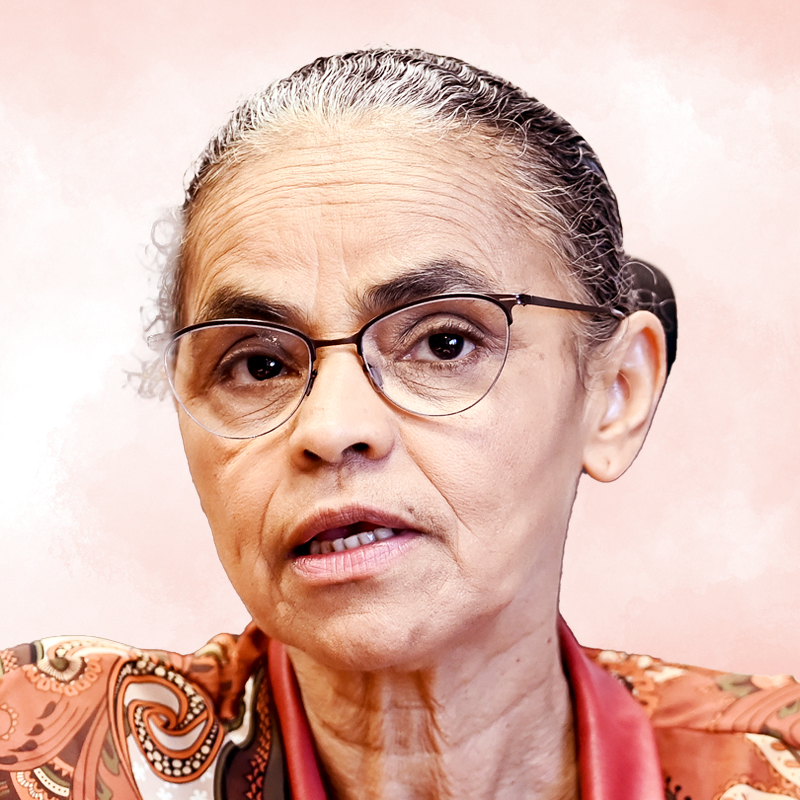Marina Silva is Brazil’s Minister of the Environment and Climate Change. In this role, she is working to build climate resilience and limit deforestation. This month, Silva shared the news that deforestation in Brazil’s Amazon was down 20% compared to last year, marking a five-year low.
What is the single most important action you think the public, or a specific company or government, needs to take in the next year to advance the climate agenda?
The most crucial thing we all need to urgently do is to break the vicious cycle of believing reality is already being changed by us, government, and societies, simply because we have reached an agreement about something, as Mia Couto wrote in his beautiful essay “The Seven Dirty Shoes.” We have a rare scientific consensus on what is going on, we have the information, we know the costs of inaction, we know what we want to avoid, we know what we need to do and, of course, we have the money to make the necessary transition effort. Year after year we are increasingly facing the consequences of inaction on climate change. Vulnerable people and countries are the most affected, yet governments and companies fail to allocate enough resources and to advance the climate agenda because of their lack of ambition and, more importantly, lack of commitment. We already have a significant part of the technical answers necessary to implement the ecological transformation the world so desperately needs. What we are missing is the ethical commitment to use technological, human, and financial resources to increase our odds against the dire consequences of climate change.
What sustainability effort do you hope will gain popularity with the general public this year, and why?
The breathless sequence of unprecedented climate impacts in 2023 has shown that adaptation efforts are more than ever a priority. It is a tough conversation, because adaptation is by definition local and demands a lot of money, but losing lives is not an option and the responsibility we share is global. A loss and damage fund, aligned with the responsibility of wealthy nations and solidarity for vulnerable populations in developing countries, must be created and put to work immediately on the scale that is needed to address the problem. It is unfortunate that we lost precious time for climate action in the past two decades because the fossil fuel lobby worked to block much needed progress. The bill now is much higher, and will become impossible to pay if we loiter any longer.
What’s the most important climate legislation that could pass in the next year?
It is difficult to mention a single important legislation on climate change, but all countries need conscientious and courageous societies and governments to push for legislations consonant with the new challenges arising from the climate emergency. Besides, it is not only about the legislation we need, but also about the legislation we don’t need. In many countries, including Brazil, we are now facing the menace of serious setbacks in legislation that, if passed, will pose serious risks to the fight against climate change. As much as environmental sustainability, we need political sustainability, and that comprises strengthening democracies and empowering citizens to vote and choose the best for them, including a new legislation on climate change.
- The 100 Most Influential People of 2024
- How Far Trump Would Go
- Scenes From Pro-Palestinian Encampments Across U.S. Universities
- Saving Seconds Is Better Than Hours
- Why Your Breakfast Should Start with a Vegetable
- 6 Compliments That Land Every Time
- Welcome to the Golden Age of Ryan Gosling
- Want Weekly Recs on What to Watch, Read, and More? Sign Up for Worth Your Time
